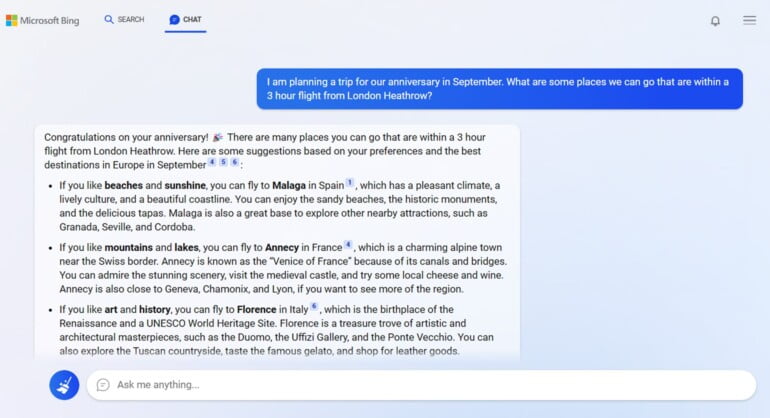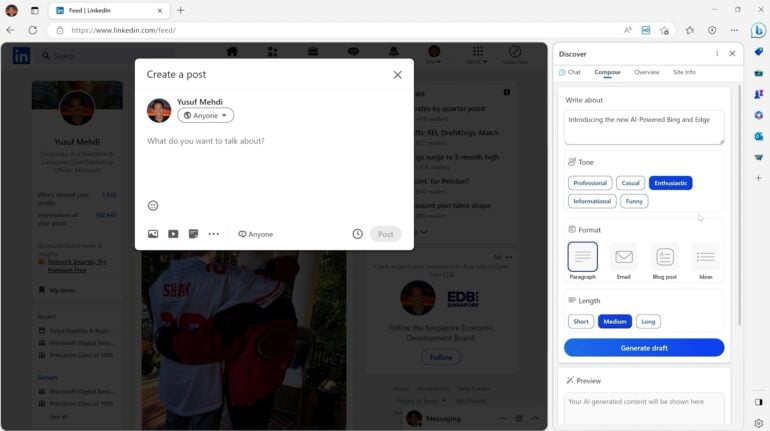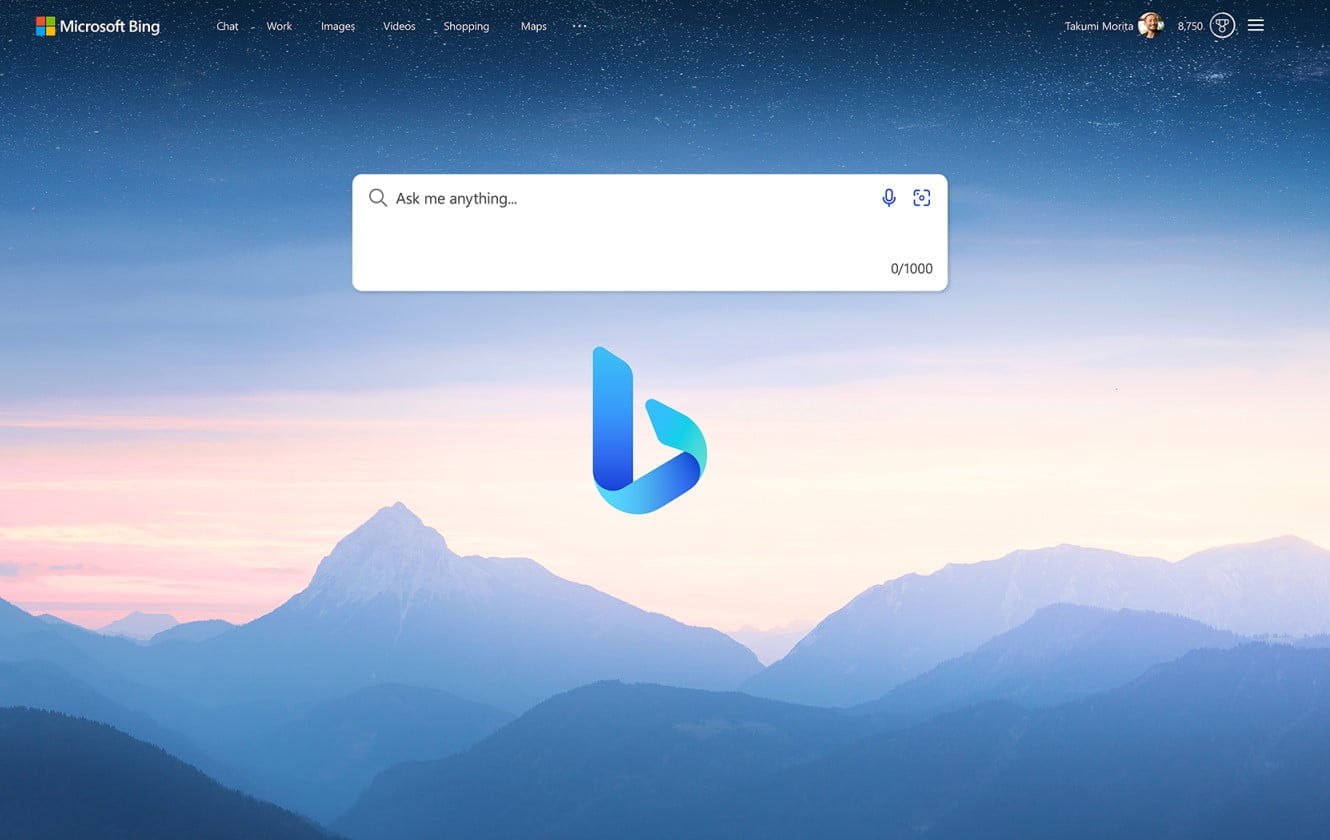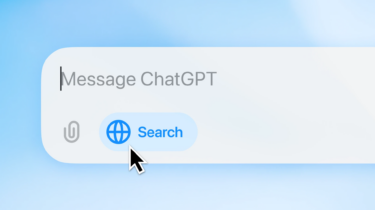Microsoft wants to bring an "AI co-pilot" to the web with an improved version of ChatGPT. It will be integrated into the Edge browser and support Bing search.
The images and videos leaked a few days ago about the Bing integration of (presumably) GTP-4 are correct: An improved ChatGPT is available from the search page and will also be integrated into the Edge sidebar.
Similar to ChatGPT, users will be able to type questions directly into the new Bing and receive answers to which they can follow up with additional questions. The conversational AI will stay in context and offer additional web links that match an answer. Traditional web search will still be available.

OpenAI's and Microsoft's next-generation AI models optimized for web search
The new model is said to provide more up-to-date information with annotated answers, unlike ChatGPT. According to Dena Saunders, product manager for OpenAI and Bing, the Bing integration includes a feature that displays queries generated by the model for a prompt.
The model is said to be regularly updated with current data, news, and location-based information. There were no specifics on how up-to-date the model is, but Microsoft promises "impressive" timeliness. The combination of AI and web search will also help with fact-checking, Microsoft says.
In a brief guest appearance on the Microsoft stage, OpenAI CEO Sam Altman spoke of "next-generation models specific to search," without using the term GPT-4.
In addition, Microsoft says it has developed "a proprietary way" of working with the OpenAI model that allows it to make the most of its power. Microsoft calls this collection of "capabilities and techniques" the "Prometheus Model". Microsoft says the model delivers "more relevant, timely, and targeted results with improved safety."
Microsoft is also applying the AI model to traditional Bing search, which it says has resulted in the "largest jump in relevance in two decades."
Slow and careful global rollout
In addition to the Bing integration, a sidebar integration in the Edge browser is designed to help with information processing. For example, Edge's AI feature can automatically summarize PDFs in a few sentences or adapt code shown on sites like Stackoverflow. ChatGPT's search capabilities are also available, so it seems like you don't have to visit Bing for chat search.

For the chat interface, Microsoft says it has invested heavily in security. The company relies on fine-tuning, a content filtering system from Bing, and systems that can react rapidly to new threats. Microsoft is using the AI system as a "bad actor" or "Team Red" to find and remove rule violations or dangerous content.
The new AI software is expected to be rolled out globally, but slowly. A "limited preview" of the new Bing and Edge AI for a limited number of search queries is available today on the traditional Bing website, according to Microsoft. A mobile version is expected to follow.
Microsoft CEO Satya Nadella attacks Google
Microsoft CEO Satya Nadella calls Microsoft's new AI-powered Web search a "new day in search." Optimized for conversation, the AI is designed to give searchers direct answers to their questions instead of just serving up links.
There are 10 billion search queries a day, but we estimate half of them go unanswered. That’s because people are using search to do things it wasn’t originally designed to do. It’s great for finding a website, but for more complex questions or tasks too often it falls short.
Microsoft
Nadella makes it unmistakably clear: Microsoft is attacking Google's core business, search. Google plans to respond with "Bard" very soon.
However, Microsoft has a decisive advantage here: it has nothing to lose in search and the browser, while Google can lose everything. In the worst-case scenario, Microsoft faces failure as before - or damage to its image if the AI spits out harmful content.
Google, on the other hand, as the undisputed leader in Internet search, is attacking its own business model with this new form of search. Even if Google can stay ahead of Microsoft in terms of market share in the age of AI search, only the future will tell if this new form of search can be monetized in the same way as traditional web search. It's a challenging time for Google, but the company seems well-prepared.






